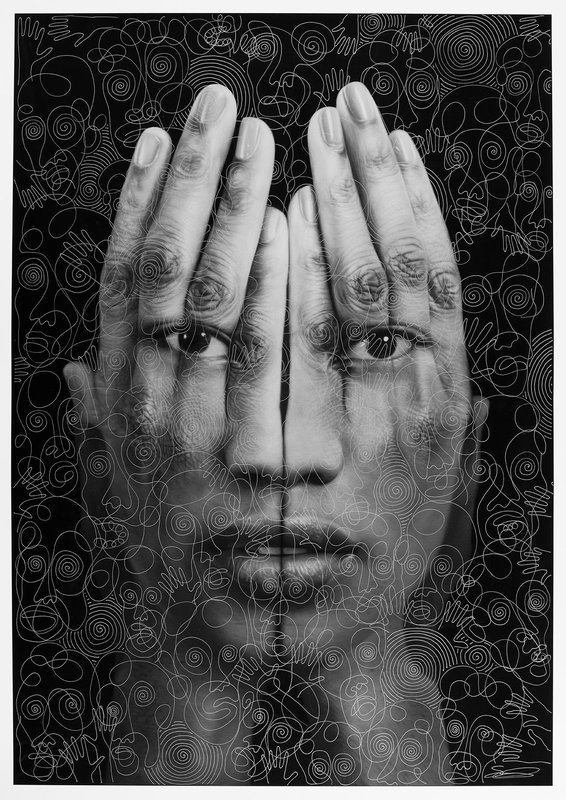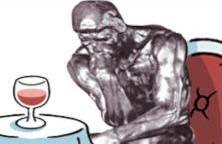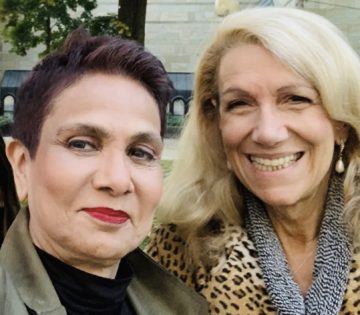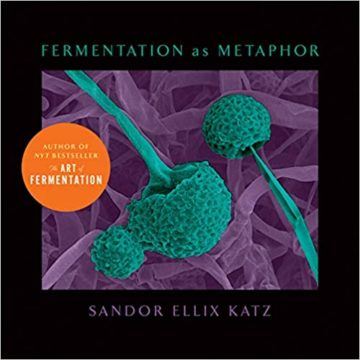Laurie Taylor in New Humanist:
 It was, in all respects, another typical Covid evening. We’d finished our regulation bottle of Chianti, yet again postponed our online Italian lesson, and decided that not one of the films on television merited a moment of our time. Three vacant hours lay between us and bedtime.
It was, in all respects, another typical Covid evening. We’d finished our regulation bottle of Chianti, yet again postponed our online Italian lesson, and decided that not one of the films on television merited a moment of our time. Three vacant hours lay between us and bedtime.
…And then, a few weeks ago, when we’d both decided that we’d lost the plot of Killing Eve, I came up with a casual suggestion. “What’s your favourite joke?” I asked her. At first she didn’t want to play. “Jokes are so terribly male, so horribly macho,” she protested. “Lots of hairy men standing around in a pub, downing pints and shrieking with laughter about cocks and tits.”
“Aren’t there any feminist jokes?” I wondered.
“Mmm. Well, there is the very special advice about how to get rid of the snails in your garden.”
“Go on.”
“You just tell them that you love them madly and want to have their baby and you won’t see them for dust.”
‘“Any more?”
“There’s the Dolly Parton one.”
“Go on.”
“Somebody asked her how long it took to do her hair and she said, ‘I don’t know. I’m never there.’ Your turn.”
I settled back on the sofa. My turn. Good. I’ve been collecting jokes since I was seven years old. My battered diary from that period even lists some of my childhood favourites. “Which nation uses the most cold cream?” Answer: The Japanese (the chappy knees). “What is brown, hairy and wears sunglasses?” Answer: A coconut on holiday. Boom boom.
Something a little more mature was called for. A riddle. “What does a dyslexic, agnostic, insomniac do at night?”
“I give up.”
“He stays up wondering if there is a dog.”
“That’s a typical man joke. Very clever. Very ‘look at me’. Not as funny as the story about the vicar’s wife who gazes lovingly at a dress in a shop window. Guiltily she goes in and tries it on. It’s gorgeous. ‘Get thee behind me, Satan,’ she murmurs to herself. A second later she’s alarmed to hear a whispered reply. ‘It looks all right from here,’ says the hidden voice.”
More here.


 The German language is famous for its often long compound words that combine ideas to neatly express in a single word complex notions. Torschlusspanik, (gate-shut-panic), for instance, referred in medieval times to the fear that one was not going to make it back into the city before the gates closed for the night, and now signifies the worry, common among middle aged people, that the opportunities for accomplishing one’s dreams are disappearing for good. Backpfeifengesicht, sometimes translated as “face in need of a fist”, means a face that you feel needs slapping.
The German language is famous for its often long compound words that combine ideas to neatly express in a single word complex notions. Torschlusspanik, (gate-shut-panic), for instance, referred in medieval times to the fear that one was not going to make it back into the city before the gates closed for the night, and now signifies the worry, common among middle aged people, that the opportunities for accomplishing one’s dreams are disappearing for good. Backpfeifengesicht, sometimes translated as “face in need of a fist”, means a face that you feel needs slapping.
 Tigran Tsitoghdzyan. Black Mirror, 2018.
Tigran Tsitoghdzyan. Black Mirror, 2018.

 The violent, insurrectionist attack on the US Capitol on January 6, 2021 was due, in part, to the success of the Nation’s system of public education, not its failure. Since Ronald Reagan announced in 1981 that “government is not the solution to our problem, government IS the problem,” federal authorities have worked to dismantle and erase any vestiges of democratic education from our system of public education. Free-market values replaced democratic ones. Public education slowly but consistently was transformed by neoliberal ideologues on both sides of the aisle into an institution both in crisis and the cause of the Nation’s perceived economic slip on the global stage. Following Reagan’s lead, all federally sponsored school reform efforts hollowed out public education’s essential role in a democracy and focused instead on its role within a free-market economy. In terms of both a fix and focus, neoliberalism was and remains the ideological engine that drives the evolution of public education in the United States. These reform efforts have been incredibly successful in reducing public education to a general system of job training, higher education prep, and ideological indoctrination (i.e., American Exceptionalism). As a consequence of this success, many of the Nation’s citizens have little to no knowledge or skills relating to the essential demands of democratic life. The culmination of the neoliberal assault on democratic education over the last forty-years helped create the conditions that led to the rise of Trump, the development of Trumpism, and the murderous, failed attempt at a coup d’etat in Washington, DC. From what I have read, I am not confident that your plans for public education will address these issues.
The violent, insurrectionist attack on the US Capitol on January 6, 2021 was due, in part, to the success of the Nation’s system of public education, not its failure. Since Ronald Reagan announced in 1981 that “government is not the solution to our problem, government IS the problem,” federal authorities have worked to dismantle and erase any vestiges of democratic education from our system of public education. Free-market values replaced democratic ones. Public education slowly but consistently was transformed by neoliberal ideologues on both sides of the aisle into an institution both in crisis and the cause of the Nation’s perceived economic slip on the global stage. Following Reagan’s lead, all federally sponsored school reform efforts hollowed out public education’s essential role in a democracy and focused instead on its role within a free-market economy. In terms of both a fix and focus, neoliberalism was and remains the ideological engine that drives the evolution of public education in the United States. These reform efforts have been incredibly successful in reducing public education to a general system of job training, higher education prep, and ideological indoctrination (i.e., American Exceptionalism). As a consequence of this success, many of the Nation’s citizens have little to no knowledge or skills relating to the essential demands of democratic life. The culmination of the neoliberal assault on democratic education over the last forty-years helped create the conditions that led to the rise of Trump, the development of Trumpism, and the murderous, failed attempt at a coup d’etat in Washington, DC. From what I have read, I am not confident that your plans for public education will address these issues.

 Philosophy has been an ongoing enterprise for at least 2500 years in what we now call the West and has even more ancient roots in Asia. But until the mid-2000’s you would never have encountered something called “the philosophy of wine.” Over the past 15 years there have been several monographs and a few anthologies devoted to the topic, although it is hardly a central topic in philosophy. About such a discourse, one might legitimately ask why philosophers should be discussing wine at all, and why anyone interested in wine should pay heed to what philosophers have to say.
Philosophy has been an ongoing enterprise for at least 2500 years in what we now call the West and has even more ancient roots in Asia. But until the mid-2000’s you would never have encountered something called “the philosophy of wine.” Over the past 15 years there have been several monographs and a few anthologies devoted to the topic, although it is hardly a central topic in philosophy. About such a discourse, one might legitimately ask why philosophers should be discussing wine at all, and why anyone interested in wine should pay heed to what philosophers have to say.
 During the 1650s, the admired Dutch diplomat Constantijn Huygens often found himself with time on his hands. He was the loyal secretary to successive princes in the House of Orange, the ruling dynasty in the northern Netherlands during the Eighty Years’ War with Spain, and had been knighted by both
During the 1650s, the admired Dutch diplomat Constantijn Huygens often found himself with time on his hands. He was the loyal secretary to successive princes in the House of Orange, the ruling dynasty in the northern Netherlands during the Eighty Years’ War with Spain, and had been knighted by both  The storming of the US Capitol on January 6 is easily misunderstood. Shaken by the ordeal, members of Congress have issued statements explaining that America is a nation of laws, not mobs. The implication is that the disruption incited by President Donald Trump is something new. It is not. The United States has a long history of mob violence stoked by white politicians in the service of rich white Americans. What was unusual this time is that the white mob turned on the white politicians, rather than the people of color who are usually the victims.
The storming of the US Capitol on January 6 is easily misunderstood. Shaken by the ordeal, members of Congress have issued statements explaining that America is a nation of laws, not mobs. The implication is that the disruption incited by President Donald Trump is something new. It is not. The United States has a long history of mob violence stoked by white politicians in the service of rich white Americans. What was unusual this time is that the white mob turned on the white politicians, rather than the people of color who are usually the victims. He calls himself a fermentation revivalist. With several award-winning books on the subject and a very large following on YouTube, Sandor Ellix Katz is part fermentation expert and part fermentation superstar. But I wondered: why revivalist? Did fermentation ever go out of fashion? Where I spent my adult life ‑ in Japan ‑ fermentation has always stood centre-stage. From soy sauce to miso and from sake to tsukemono, it is hard to imagine Japanese food without it.
He calls himself a fermentation revivalist. With several award-winning books on the subject and a very large following on YouTube, Sandor Ellix Katz is part fermentation expert and part fermentation superstar. But I wondered: why revivalist? Did fermentation ever go out of fashion? Where I spent my adult life ‑ in Japan ‑ fermentation has always stood centre-stage. From soy sauce to miso and from sake to tsukemono, it is hard to imagine Japanese food without it. It was, in all respects, another typical Covid evening. We’d finished our regulation bottle of Chianti, yet again postponed our online Italian lesson, and decided that not one of the films on television merited a moment of our time. Three vacant hours lay between us and bedtime.
It was, in all respects, another typical Covid evening. We’d finished our regulation bottle of Chianti, yet again postponed our online Italian lesson, and decided that not one of the films on television merited a moment of our time. Three vacant hours lay between us and bedtime.